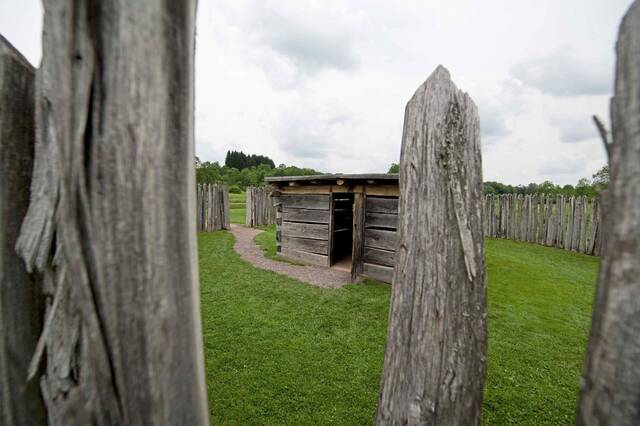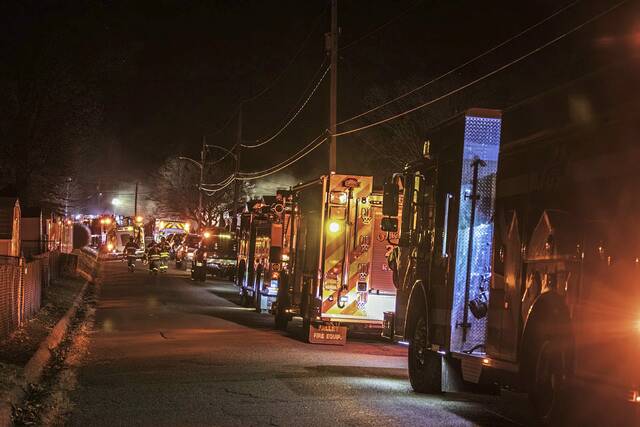Point Park University wants to attract artists, single parents and retirees to live on its campus as part of an effort to reinvigorate Downtown Pittsburgh and add 30% to the school’s enrollment by decade’s end.
On Monday, leaders of the Downtown university with 3,300 students unveiled a strategic plan outlining ambitious goals for the next seven years, including the addition of approximately 1,000 students.
The plan, “Pioneer Vision 2030,” includes brick-and-mortar ideas, like a new community events center on the Boulevard of the Allies. A school already focused on experiential learning would add even more internships, co-ops and other field work to studies.
Varsity athletic programs would grow in number to include men and women’s tennis, men and women’s lacrosse, and men and women’s wrestling. The school would also undertake a capital campaign.
Release of the plan comes as many public and private colleges and universities in Western Pennsylvania and beyond have struggled to maintain enrollment levels. Point Park’s headcount is down by 19% from 2010-11.
Trustees at the private university approved the plan on Oct. 24 and timetables for the work are being developed.
Chris Brussalis, who in July became Point Park’s ninth president, said the university wants to leverage its nationally known Conservatory for the Performing Arts, which has a wait list of students, “as a beacon” to attract enrollment to Point Park’s five other schools.
For example, synergies would include those like a minor in theatrical engineering that debuted this fall and what Brussalis said is the nation’s first teaching certificate in dance, a program created with the School of Education.
Brussalis said he and others doubt that office workers will return to Downtown in droves post-pandemic. But Pittsburgh and other urban centers will nonetheless be hubs post-covid-19 for entertainment opportunities, culture and community outreach.
“That’s our sweet spot. That’s what we do,” he told the Tribune-Review. “Point Park has an opportunity to be the catalyst for a Renaissance 3 in Pittsburgh,” he said, referencing a pair of earlier renewals that remade Downtown economically.
The school will cast a wider net to attract traditional-age residential students to achieve that aim. Another pillar would be mixed-generational housing.
“We want to have artists in residence. We want to bring in artists who can mentor and teach,” Brussalis said.
Pittsburgh Scholar House, a nonprofit advocacy group for single parents and children, is another student market to be tapped, the president said.
“My understanding is there are 300 single parents there who are looking to start or finish college degrees – single parents with small children,” he said. “We want to house those families on our campus. We want them to be part of our university community.”
Likewise, he added, “We would like retirement living to be part of our community, living on our campus. Learning is lifelong.”
Point Park has about 1,000 beds in its four student residence buildings — Thayer, Lawrence, Conestoga and Boulevard Apartments. It had about 890 residence hall students as of last year.
Adding mixed-generational students would mean securing additional facilities rather than using existing halls, spokesman Lou Corsaro said Monday.
At some colleges that do have excess student dorm space, mixed-generational housing is sometimes raised as a potential hedge against a decline in the 18- to 22-year-old college student market, especially in the Northeast and Midwest.
“Could you imagine if we are able to bring another 1,000 people living sustainably, living Downtown, to our campus?” Brussalis asked. “Think of the vitality that it provides.”
All of them could enhance the student experience, Brussalis said.
“These people have to live somewhere,” he said. “Live on our campus.”
Point Park, with an endowment of $50 million, had almost 4,100 students in 2010-11, according to its fact book. Its enrollment has since declined by about 800 students.
The plan envisions making improvements to the Wood Street corridor running through campus, an endeavor the strategic plan calls “Academic Village 2.0.”
A new community events center would be created at the former YMCA building, currently Point Park’s student center, and an adjacent parking lot. A new basketball/volleyball/indoor track venue is planned.
Among the other ideas:
- Creating an Institute of Community Engagement to include urban studies, planning, and renewal, possibly creating an urban studies or urban planning academic program
- Boosting the Fall 2024 Conservatory incoming class by up to 30 percent
- Develop “Pioneer Accelerator,” funded to $10 million, with a focus on arts, entertainment, and entertainment technology to create experiential learning opportunities and encourage technology transfer
- Establish a Center for Entertainment Management located in the Pittsburgh Playhouse to spur cross-disciplinary study, co-ops, and the development and commercialization of intellectual property
- Develop a policy to promote transfer student enrollment and allow internships and co-op opportunities to fulfill graduation requirements.








